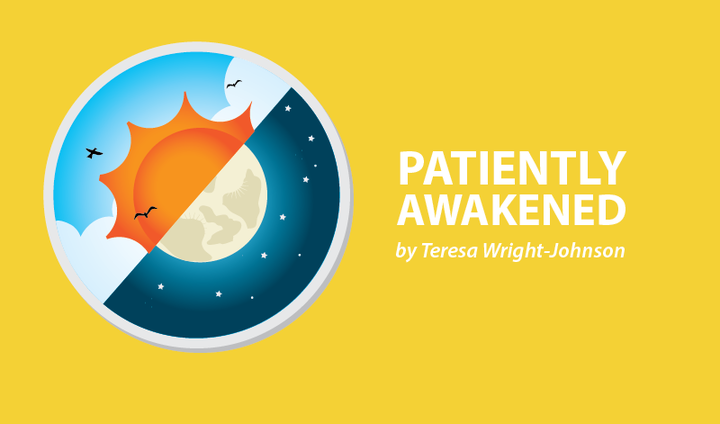The Stigma Surrounding Depression
Written by |


Lots of columns and articles look at issues surrounding the topics of depression and mental health-related disorders. I have referenced them in various columns. What saddens me is the stigma surrounding depression that prevails in our society. There are many who struggle with depression and other forms of mental illness. The societal disconnect is damaging. A conversation I had with someone recently about depression is the impetus behind this week’s column.
The Mayo Clinic defines depression as “a mood disorder that causes a persistent feeling of sadness and loss of interest.” The writers further explain the symptoms of depression, which include feelings of sadness, emptiness or hopelessness, angry outbursts, irritability and frustration, loss of interest or pleasure in most or all normal activities, sleep disturbances, such as insomnia or sleeping too much, tiredness, lack of energy and suicidal thoughts.
The signs of depression can be both discernible and inconspicuous. People battling depression are often unaware of it, as are their family and friends. As I am writing this, I reconcile that I have experienced many of these symptoms at one time or another. I believe lots of people have. If we are going to address the issue of depression and mental health disorders, we have to be devoted to raising awareness about the subject. We cannot spurn or deny it, and we are compelled to recognize depression in ourselves and others. Help must be summoned.
During my discussion with the individual, I suggested professional help. The person endured traumatic events throughout the past several years and reactions and decisions appear to reflect those of someone who is severely depressed. I am not a psychiatrist or a medical professional; however, I believe I am attuned to recognize depression. The person immediately denied that depression was an issue, claiming it is normal for everyone. I concurred with that statement. I further explained that, although bouts of depression are normal, there is a more complex component that cannot be described as a bout. A bout of something refers to a short period of time. Clinical, major depression is different, I said. It most likely requires medical intervention, treatment and appropriate follow-up.
Having this exchange caused a potent internal reaction, as I have experienced most of the subjects I write about. I shared with the individual my personal experience with depression and the issues that remain a struggle. I divulged the times in my life where I have been extremely depressed, unrecognizable to myself and too engulfed in denial to confess my mental state. I shared in hope that the person would know you are not alone and that there is hope and help available. I shared to encourage the person to take the first step in acknowledging the present state of mind. Shockingly, while sharing, my subconscious sought to remind me that I am not immune to depression. I have not overcome. I was stubbornly reminded that I am not invincible.
Anytime we share our truth and stand in authenticity, we can be betrayed by erroneous feelings of what we perceive to have overcome and the reality that we still struggle. As I was speaking to the individual, my own issues surfaced. My anxiety appears to worsen over time and I am reluctant to take medication to treat it. In the midst of my conversation, I was having an “a-ha” moment. In my efforts to encourage another person, I was secretly consoling myself.
The trepidation of facing the stigma and being labeled is a legitimate reaction. Society tends to prey on weakness. By the end of the dialogue, the person agreed to seek medical attention, at least for an evaluation. I felt accomplished in that sense. I also felt a huge burden to hold myself accountable. Being present for others, discussing my illnesses and issues, writing and praying have helped me tremendously, yet appropriate medical care for my physical and mental health is crucial. Maintenance is required.
The stigma surrounding depression and mental health is ever-present. If we are going to attend to the issues of depression and mental illness, all sides of the coin must be considered. The roles that race, gender, religion and society play cannot be ignored.
Depression and mental health exceeds the scope of multiple sclerosis and chronic illness. People from all walks of life are searching for help and support. It is our collective responsibility to dispel the stigma and isolation that surrounds these disorders. To those living with depression and mental illness, I see you and I understand. You don’t have to fight this alone. You have more support than you realize. A sincere thank you to the person who caused me to take another look into the mirror. I am a work in progress and a pupil of life.
You are invited to visit my website at teresawrightjohnson.com.
***
Note: Multiple Sclerosis News Today is strictly a news and information website about the disease. It does not provide medical advice, diagnosis, or treatment. This content is not intended to be a substitute for professional medical advice, diagnosis, or treatment. Always seek the advice of your physician or other qualified health provider with any questions you may have regarding a medical condition. Never disregard professional medical advice or delay in seeking it because of something you have read on this website. The opinions expressed in this column are not those of Multiple Sclerosis News Today, or its parent company, Bionews Services, and are intended to spark discussion about issues pertaining to multiple sclerosis.



Leave a comment
Fill in the required fields to post. Your email address will not be published.